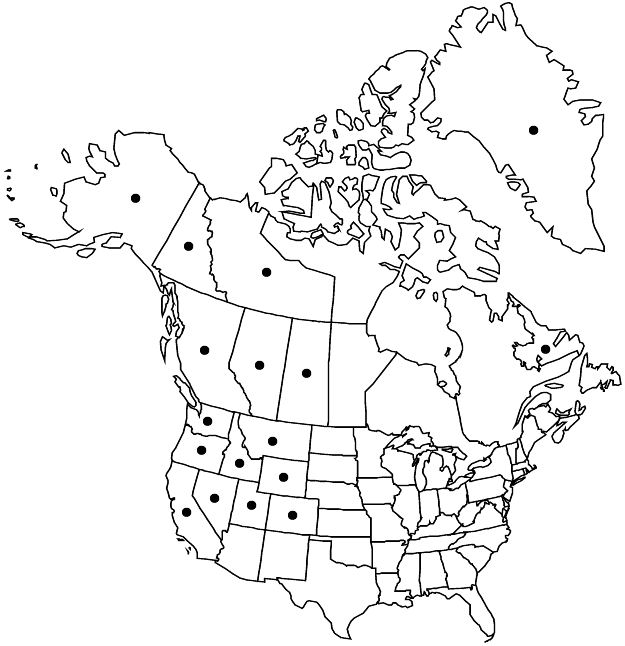Potentilla glaucophylla
Index Seminum (Hamburg) 1836: 7. 1836.
Glands absent or inconspicuous, uncolored. Stems mostly ± ascending, 0.5–3(–4.5) dm. Basal leaves often 2-ranked, palmate, sometimes subpalmate, 2–20 cm; petiole (0.5–)1–8(–14) cm, long hairs often absent, sometimes sparse to abundant, usually appressed, 1–2 mm, weak to ± stiff, short, crisped, and cottony hairs absent, glands absent or sparse; leaflets 5–6(–7), sometimes with 1–2(–4) additional, smaller, entire leaflets, on tip or to distal 1/10(–1/4) of leaf axis, separate, largest ones oblanceolate or cuneate to obovate, 1–4(–6) × 0.5–1.5(–2) cm, margins flat, distal 1/3–1/2(–2/3) ± evenly incised 1/2 or nearly to midvein, undivided medial blade 1.5–7(–10) mm wide, teeth 1–3(–5) per side, broadly lanceolate or linear to narrowly oblong, 1–5(–8) mm, surfaces similar adaxial ± less hairy, ± blue-green, usually glaucous, long hairs sparse to abundant (often restricted to veins, distal teeth, and margins), short, crisped, and cottony hairs absent, glands absent or sparse. Cauline leaves (0–)1–2(–3). Inflorescences 2–10(–20)-flowered. Pedicels (0.5–)1–3(–6.5) cm. Flowers: epicalyx bractlets lanceolate to elliptic, 2–5 × 0.8–1.2(–1.6) mm, hairs sparse to common, rarely abundant, ± ascending, glands absent or inconspicuous; hypanthium 3.5–5 mm diam.; sepals (2–)2.5–4.5(–5) mm, apex acute to short acuminate; petals (4–)5–10(–12) × 4–9(–10) mm; filaments 1.5–2.5(–3) mm, anthers 0.4–0.7(–0.9) mm; carpels 25–40, styles filiform above papillate-swollen base, 1.5–2.5(–3) mm. Achenes 1.2–1.6 mm.
Distribution

Alta., B.C., N.W.T., Nfld. and Labr., Sask., Yukon, Alaska, Calif., Colo., Idaho, Mont., Nev., Oreg., Utah, Wash., Wyo.
Discussion
Varieties 2 (2 in the flora).
Potentilla glaucophylla replaces P. diversifolia; an examination of the lectotype of the latter confirms J. Soják’s (1996) conclusion that P. diversifolia applies to a hybrid involving P. glaucophylla and P. hippiana. Historically, this species was often termed P. dissecta Pursh, a misapplied name that has been rejected (B. Ertter et al. 2008).
In addition to the nomenclatural change, the circumscription of Potentilla glaucophylla is here restricted to plants with usually glaucous, blue-green, distally toothed leaflets that are usually glabrate (at least in var. glaucophylla). Plants from the Colorado Plateau and southern Rocky Mountains formerly included in this species and having dark green leaves, more leaflet teeth, and larger anthers are transferred either to P. townsendii or to a currently undescribed entity.
The two-ranked leaves of Potentilla glaucophylla suggest a possible connection to P. crantzii in sect. Aureae.
Selected References
None.
Key
| 1 | Leaflets incised 1/3–1/2 to midvein, teeth broadly lanceolate; range of species. | Potentilla glaucophylla var. glaucophylla |
| 1 | Leaflets incised 3/4+ to midvein, teeth linear to narrowly oblong; northern Rocky Mountains. | Potentilla glaucophylla var. perdissecta |